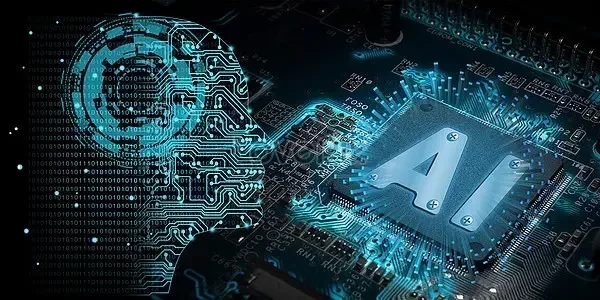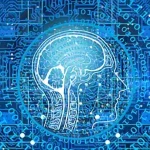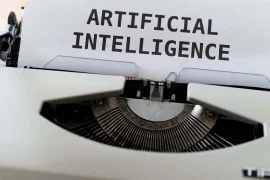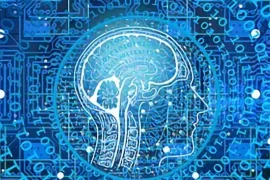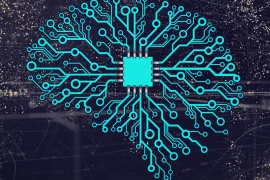The prospect of an AI Engineer can lead to many opportunities, especially considering how merged our lives have become to AI-driven tech. From healthcare to entertainment and technology, Artificial Intelligence can open up new career doors and societal outlooks, and also improve existing ones. For more information on what exactly AI is, check out this blog: What is AI.
How to Become an AI Engineer
There are many ways to become an AI developer. Most, if not all, AI jobs require an analytical thought process. A key characteristic is the ability to solve problems with cost-effective and efficient solutions. AI Engineers should be aware that technological innovations need to be able to translate to state-of-the-art programs.
To elaborate, let’s dive into innovations. It is apparent, initial product innovation first needs an introduction of a new product. You cannot, however, introduce just any new product. The new product must solve an existing problem in an exciting and modern way. Or the product needs to solve a completely new problem that has come to light.
For example, at the 2016 Consumer Electronics Show, the electronics company LG introduced a new type of flexible screen that you can roll up like a newspaper. When you first hear it, it sounds like science fiction. But it’s not in the realm of fiction anymore, it’s an actual real product that could become readily available to everybody in a short time. So what’s innovative about this, you ask? This innovative product solves the portability problem- instead of large, unwieldy screens, people can instead show videos on screens they can fold up when they are done and put in their bags.
New innovative products can introduce new technologies or new ways to do something. And this is what AI Engineers need to be aware of- translating technological innovations into tangible practical products.
The following topics provide an understanding of the prerequisites that you must obtain to get the AI job of your dreams. You can also check this blog that elaborates on what AI Engineering is- What is AI Engineering. If you are hoping to begin a career as an AI Engineer, here are the requirements.
Education Prerequisites Required to be an AI Engineer
You first need to earn a bachelor’s degree to become an AI Engineer. You can earn a degree in the following subjects:
- Computer Science
- Mathematics
- Information Technology
- Statistics
- Finance
- Economics
- Data Science
- Cognitive Science
You can also take additional courses and pursue relevant certifications. There are many online courses and certifications created to further your AI knowledge and skills. For example, you might consider taking the AI2GO programming course by Fusemachines, an online course designed for individuals to learn about AI and its applications with no computer background knowledge necessary.
Technical Skills Required to Become an AI Engineer
You will need in-depth knowledge of various technical skills to be a successful AI Engineer. You must know and use various software development techniques and practices, along with programming skills. As an AI Engineer, you will have a set of responsibilities within your workplace. To know more about the responsibilities of an AI Engineer, you can check out this article- What are the Responsibilities of an AI Engineer?
Make sure you have a firm grasp of the following topics:
- Programming Languages
- Statistical Knowledge
- Applied Maths and Algorithms
- Natural Language Processing
- Deep Learning and Neural Networks
Programming Skills
The first skill you need to become an AI Engineer is programming. Learning programming languages such as Python, R, Java, and C++ is a must to build and implement models. It is also good to know about classes and data structures. In addition, you might encounter projects where you need to leverage hardware knowledge. Thus, you must be familiar with basic algorithms, classes, memory management, and linking.
Applied Math and Statistical Skills
Technical and statistical skills include matrices, vectors, and matrix multiplication. To understand and implement AI models, you must know Linear Algebra, Probability, and Statistics. A good understanding of derivatives and integrals is necessary as well. Statistics are empirical, and tend to come up a lot. Make sure you are familiar with Gaussian Distributions, Means, and Standard Deviations as they are the fundamentals of AI Engineering. You must also have a firm understanding of Probability as this can help you understand models such as:
- Gaussian Mixture Models
- Naive Bayes
- Hidden Markov Models
The next technical skill you need is in-depth knowledge of algorithm theory and how algorithms work. To completely grasp and understand AI, you will need to know subjects such as the Gradient Descent, Quadratic Programming, Partial Differential Equations, Lagrange, and so on. Unlike front-end development, Machine Learning and Artificial Intelligence are much more math-intensive.
Natural Language Processing Skills
NLP incorporates two major fragments of Machine Learning and Artificial Intelligence: Linguistics and Computer Science. As an AI Engineer, the possibility of working with either text, audio, or video is highly probable. Therefore, it is important to have a good grasp of libraries such as Gensim, NLTK, and techniques such as word2vec, Sentimental Analysis, and Summarization.
Deep Learning and Neural Networks Skills
While working as an AI Engineer, you might need Machine Learning for assignments that are too complex for humans to code directly. This is where Neural Networks come in. Neural Networks are inspired by the human brain and identify numerical patterns based on sensory data.
Artificial Intelligence has advanced from single-layer Neural Networks to Deep Learning Neural Networks. Data is passed through manifolds for complex pattern recognition in Deep Learning Neural Networks. They are the most accurate way of approaching complex problems such as Translation, Speech Recognition, and Image Classification.
Aside from technical skills, AI Engineers also require business and non-technical skills to successfully navigate within companies and organizations.
Conclusion
When it comes to the best jobs for the future, only a few industries stand out as much as Artificial Intelligence and AI Engineering. The Fuse.ai center is an AI research and training center that offers blended AI courses through its proprietary Fuse.ai platform. The proprietary curriculum includes courses in Machine Learning, Deep Learning, Natural Language Processing, and Computer Vision. Certifications like these will help engineers become leading AI industry experts, and also aid them in achieving a fulfilling and ever-growing career in the field.
